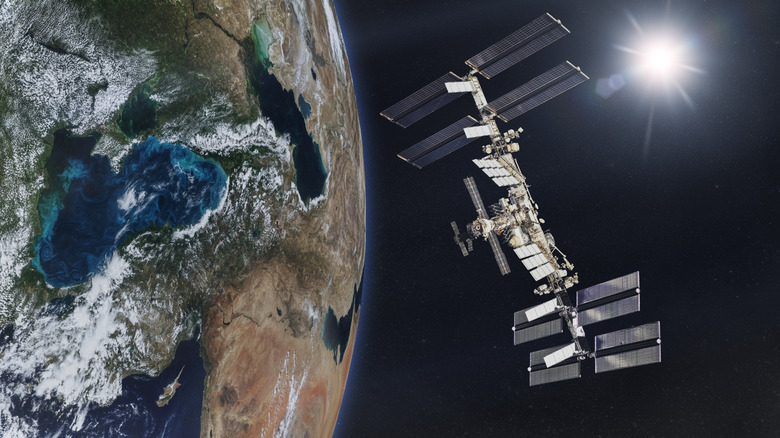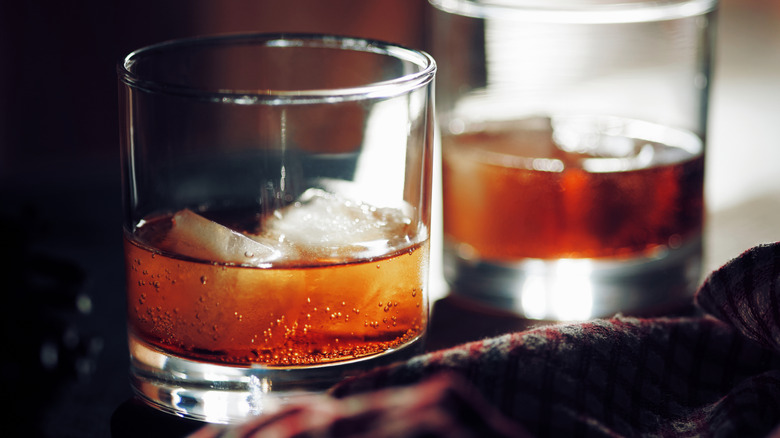There's A Reason Alcohol Is Banned On The International Space Station But It's Not What You Think
We may receive a commission on purchases made from links.
It's well-known that alcohol and heavy machinery do not mix well, so it should come as no surprise that alcohol is one of the things astronauts are banned from having on the International Space Station. Getting plastered in a 150-billion-dollar spacecraft traveling at 5 miles per second while surrounded by delicate life-preserving technology sounds like a surefire recipe for trouble. But it's not just drinking alcohol that is banned on the ISS. Alcohol of any form, including in mouthwash and aftershave, is forbidden. That's because the real reason for the station's alcohol ban isn't about the risks of drunkenness.
Alcohols, including ethanol (the type of alcohol in beer, wine, and liquor), evaporate faster than water. If an alcoholic product is exposed to the air for even a brief moment, ethanol fumes can escape from it, and the same goes for other volatile compounds. This is a big problem aboard the ISS, where air purity is vital. Since there is no natural source of water in space, the ISS is equipped with a water recycling system that collects all of the moisture present in the air and runs it through a filtration system to make it drinkable. Astronauts' urine, sweat, and even the moisture on their breath gets pulled through this system and converted into potable water. If contaminants like ethanol vapor get loose in the ISS, they could infiltrate and damage the water recovery system, putting the crew's lives at risk.
When alcohol was smuggled into space
In the early days of NASA, alcohol rules weren't so strict. Buzz Aldrin even took communion on the moon. But in 1972, when NASA launched its first space station, Skylab, a no-alcohol policy was set. Not everyone has followed this rule however. In 2007, NASA became embroiled in controversy when an independent review found that several astronauts had been cleared for spaceflight despite having alcohol in their systems. Crewmembers are not allowed to drink within 12 hours of launch time.
Russia, one of the countries that co-operates the ISS, has an even more prolific history of drinking in space. Although the nation's space agency forbids alcohol, many cosmonauts have still found ways to indulge, with cognac reportedly being their libation of choice. On Salyut-7, one of the earliest space stations ever built, one cosmonaut celebrated his birthday with a bottle of cognac smuggled inside a blood pressure cuff. Perhaps the most impressive effort came from cosmonaut Igor Volk, who, in 1984, lost nearly five pounds so that he could hide a bottle of cognac and a jar of pickles in his spacesuit without exceeding weight limitations.
The ISS hasn't produced such wild stories yet, but it's likely that some alcohol has been indulged in up there. When interviewed for the 2019 book Alcohol in Space, retired astronaut Clayton Anderson said outright that any claims that the ISS is fully alcohol free are "bogus". It's definitely risky though, as the vulnerable nature of the filtration system could lead to disaster on the ISS.

